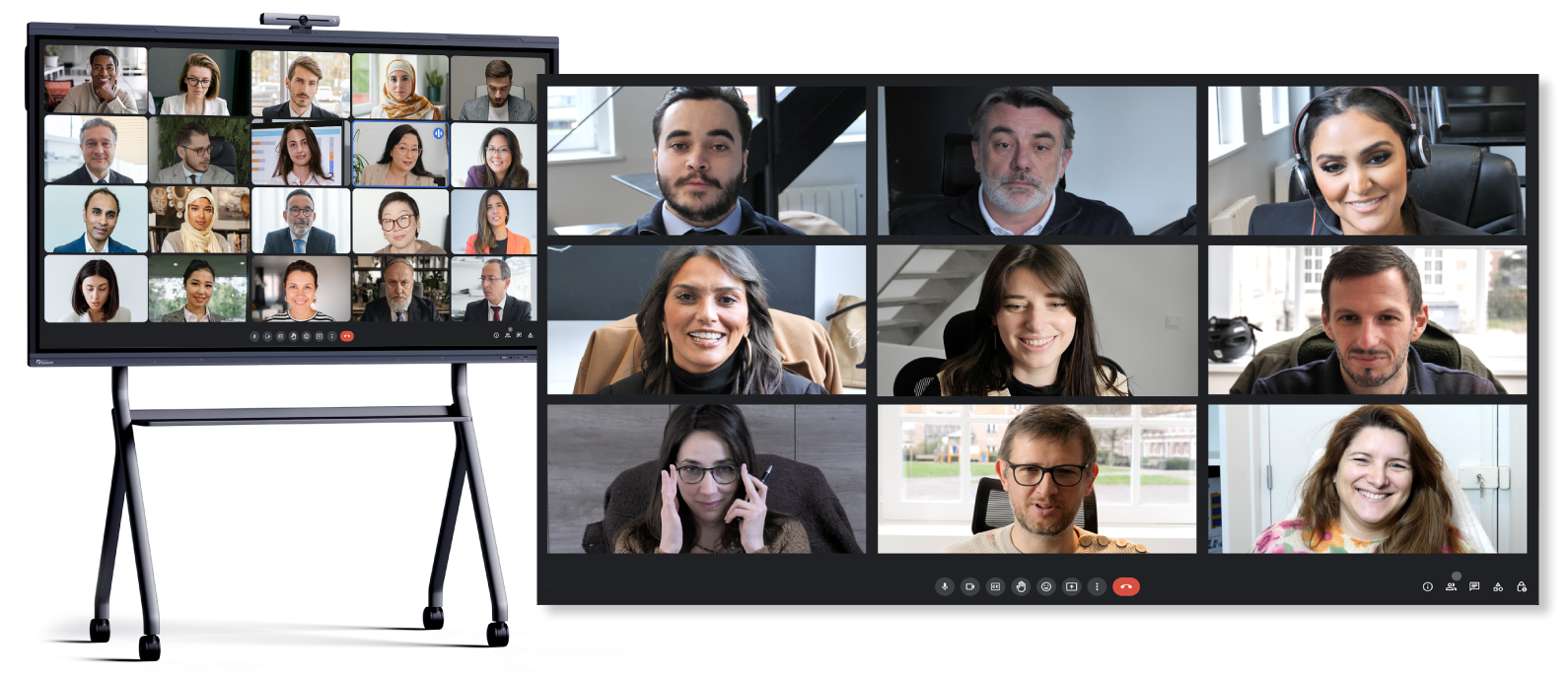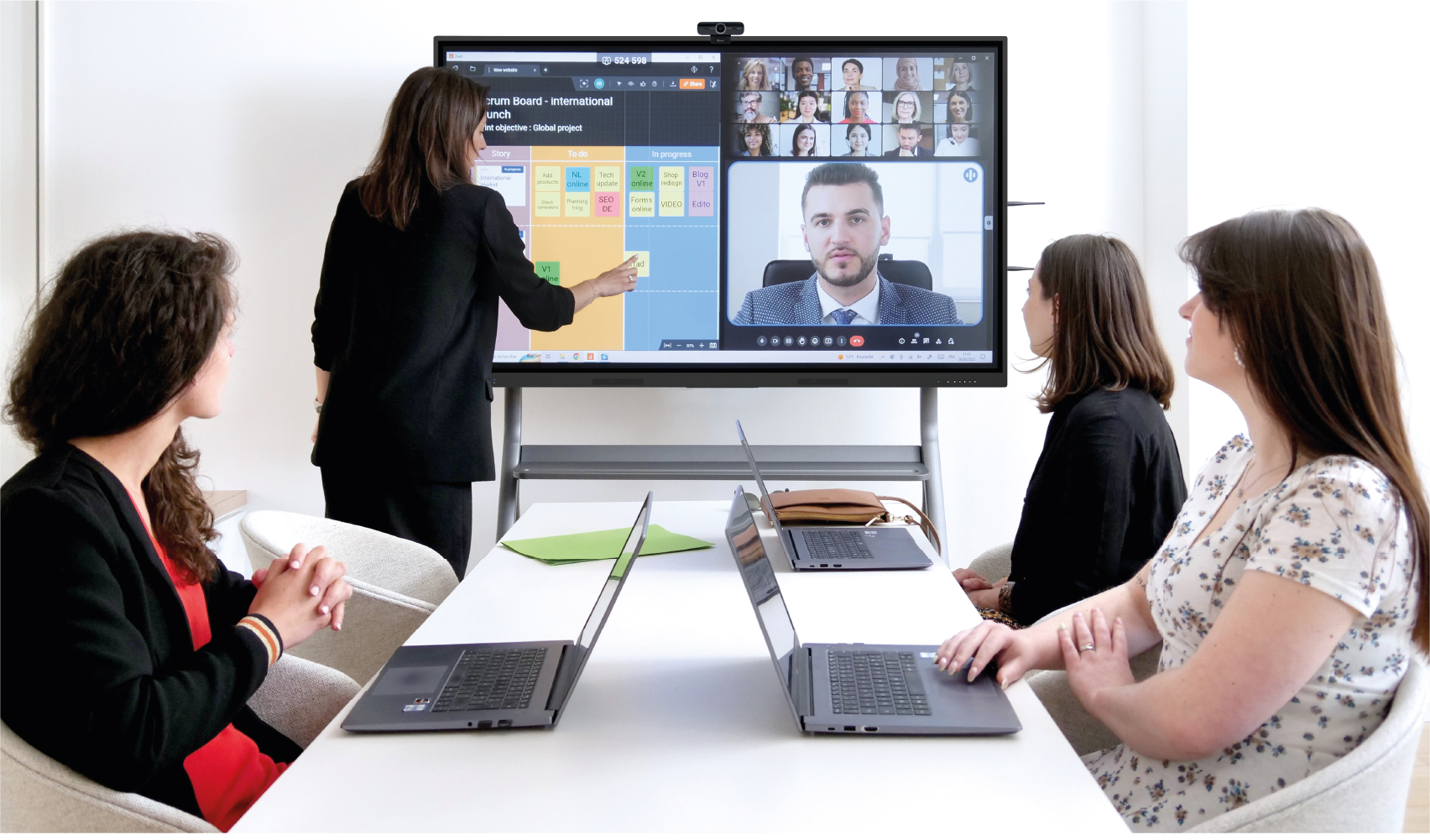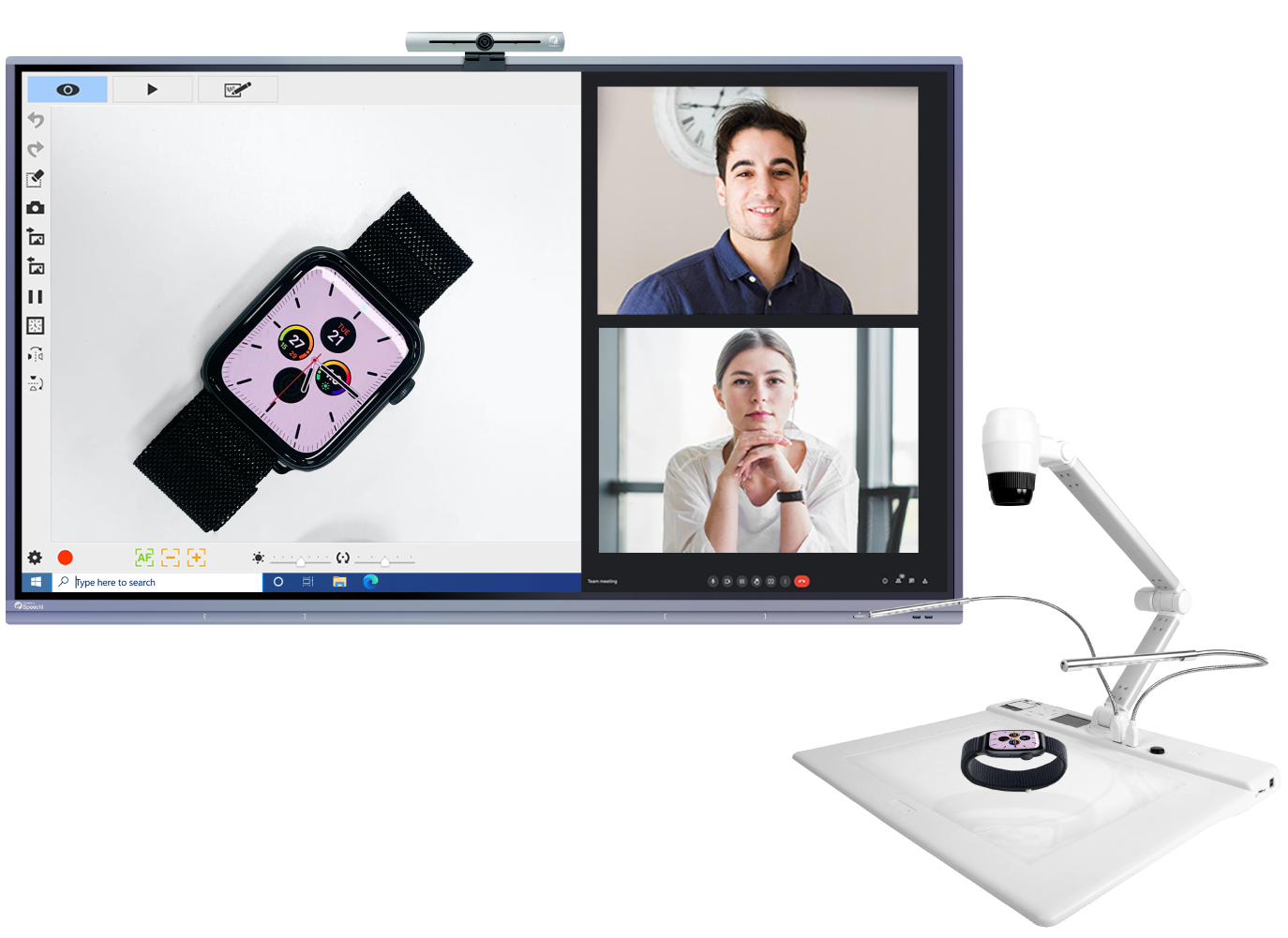Ifop Survey
Videoconferencing
How videoconferencing
is changing the lives of executives
(and businesses)
Videoconferencing, a practical solution for executives
During the pandemic, executives heavily relied on remote work and videoconferencing to continue their activities within companies that had to adapt to an exceptional and unexpected situation. Nearly 18 months after the first lockdown, Ifop conducted a survey for speechi.com, looking at executives’ perception of videoconferencing, revealing that not only is the practice of remote meetings still prevalent, but it has also significantly progressed.
According to Romain Bendavid,
Director of Corporate Expertise and Social Climate at Ifop,
the increase in the number of meetings among executives, combined with the use of videoconferencing, represents a major shift in organizational practices.
“With the crisis, meetings have become a common form of work,” he summarizes.
Indeed, beyond reducing health risks, videoconferencing offers several benefits: time saving, shorter and more effective meetings, and less stressful speaking engagements. But will executives want to return to in-person meetings?
Videoconferencing
Meetings becoming a form of work that is becoming commonplace
As a result of the pandemic, reduced office interactions and the convenience of videoconferencing—which requires no travel—explain the significant increase. Nearly half (46%) of executives surveyed by Ifop report attending 5 or more meetings per week, double the figure from 2015 when 23% of executives indicated experiencing this amount of weekly meetings. Specifically, the larger the company (more than 500 employees), the higher the number of weekly meetings (6.3 on average compared to 2.7 for smaller businesses).


Most executives
have used
videoconferencing
The COVID-19 pandemic boosted the use of videoconferencing in the workplace. As a result, 94% of executives report having used this technology over the past year, a 12-point increase since March 2021.
On average, over the 12 months preceding the survey, more than half (56%) of the meetings attended by executives surveyed by Ifop were videoconferences.

To see and to be seen:
That is the question
According to the study, 85% of respondents use their camera during remote meetings, either systematically (32%) or as needed (53%).
A deactivated camera could lead to unrelated activities during the meeting. Indeed, 64% of executives surveyed have discussed unrelated matters via messaging during a meeting. However, the rise of videoconferencing has led to often humorous mishaps where participants thought their camera was off when it was not… 5% of executives admit to attending a meeting in their birthday suit when their camera was off!

A valued practice
thanks to its many benefits
Widely used by executives, videoconferencing remains appreciated by 74% of those surveyed. This is due to its numerous benefits, deemed either important or very important by executives, especially time saved on travel (95%), reduced health risks (55%), and shorter, more effective videoconferences (38%).
Another, often overlooked, benefit is the reduction in stress during speaking engagements.

Returning to in-person meetings:
An unenthusiastic yes
While executives generally appreciate working with videoconferencing and find it offers notable benefits, a slight majority (57%) still wish to regain the in-person contact provided by physical meetings.
In other words, executives have adapted well to the constraints imposed by the COVID-19 pandemic, without forgetting the importance of human interaction unmediated by a screen.

What tools
improve
remote work?
Among the tools enhancing videoconferencing for executives, document cameras are most favored, with half of the executives surveyed (51%) Among the tools enhancing videoconferencing for executives, document cameras are most favored, with half of the executives surveyed (51%) ability to create and share, using software or an interactive display with sharing functions, appealed to the respondents. Likewise, having a high-quality camera was also appreciated.
However, nothing is more frustrating than choppy audio or video during remote meetings, which is why 74% of executives consider poor sound quality as a major impediment, while 46% think the same about defective video. Additionally, the lack of an IWB for writing and sharing inputs and ideas is also seen as a significant drawback by 22% of respondents.
Video conferencing
Tips and examples of applications
Which interactive display best suits your videocon- ferencing needs?
Find the interactive display that best suits your dynamic videoconferencing needs.
Wireless cameras and microphones for videocon- ferencing
To make your remote meetings run more smoothly, opt for a videoconferencing system.
Software for videoconferencing collaboration
Optimise team communication by using collaborative software to support videoconferencing.
A huddle room to improve collaborative work
For spontaneous meetings or brainstorming sessions, use the huddle rooms for better collaboration.
Advice from Speechi: a productive videoconference
Read all our advice on how to make videoconferencing work for your business
Case studies: videoconferencing on interactive display
Find out how interactive displays improve remote collaboration for our customers.
Ifop Survey:
a survey on videoconferencing
Find out the results of Ifop’s survey on videoconferencing among company executives.
Find out more